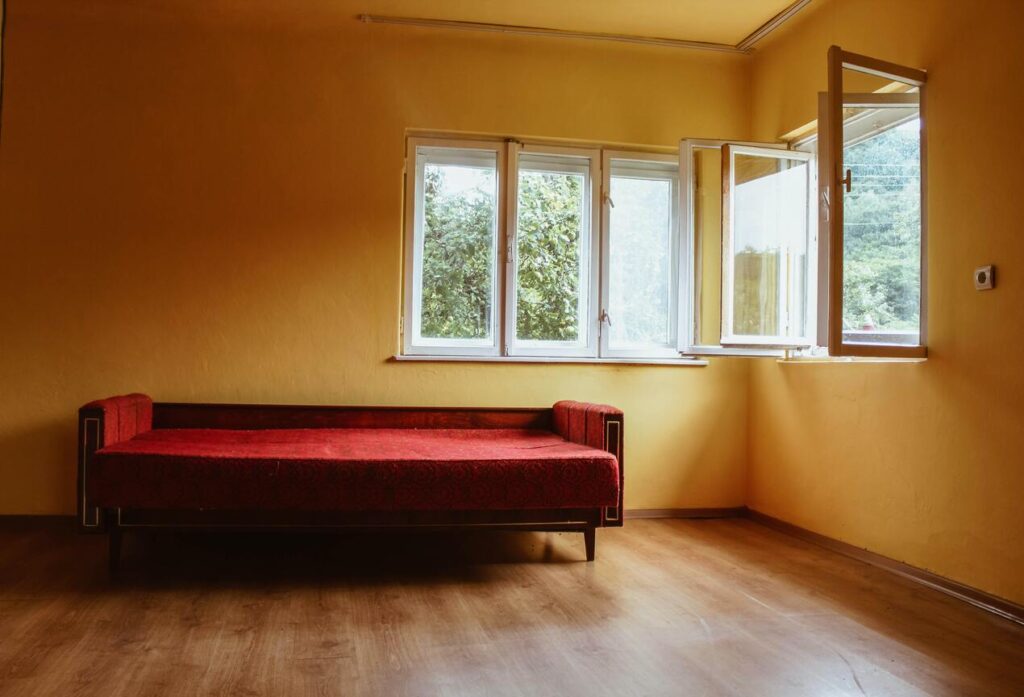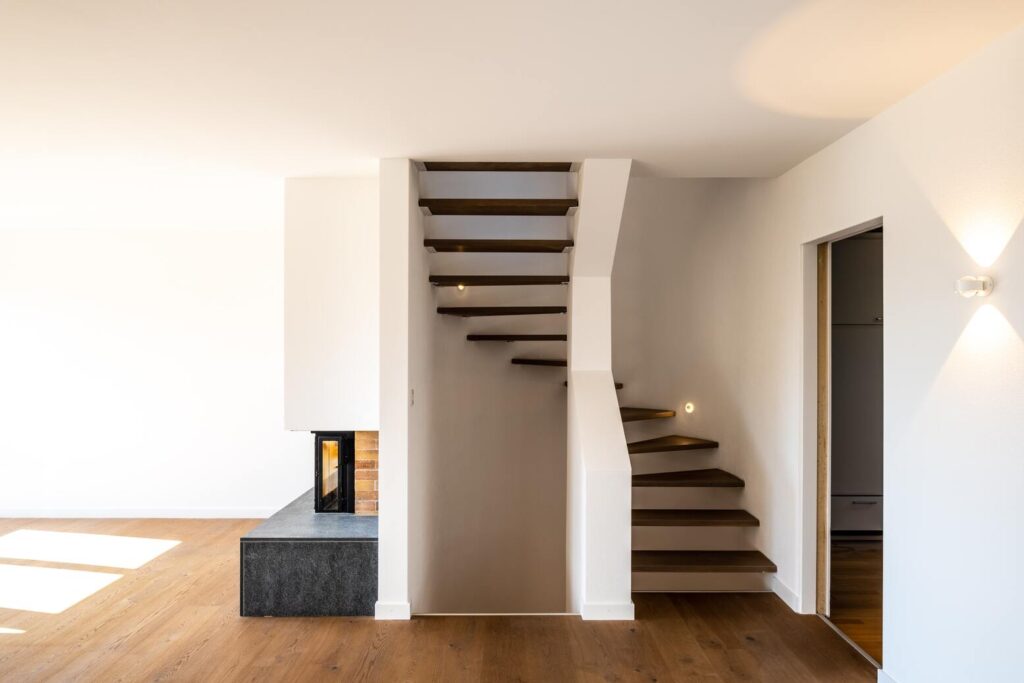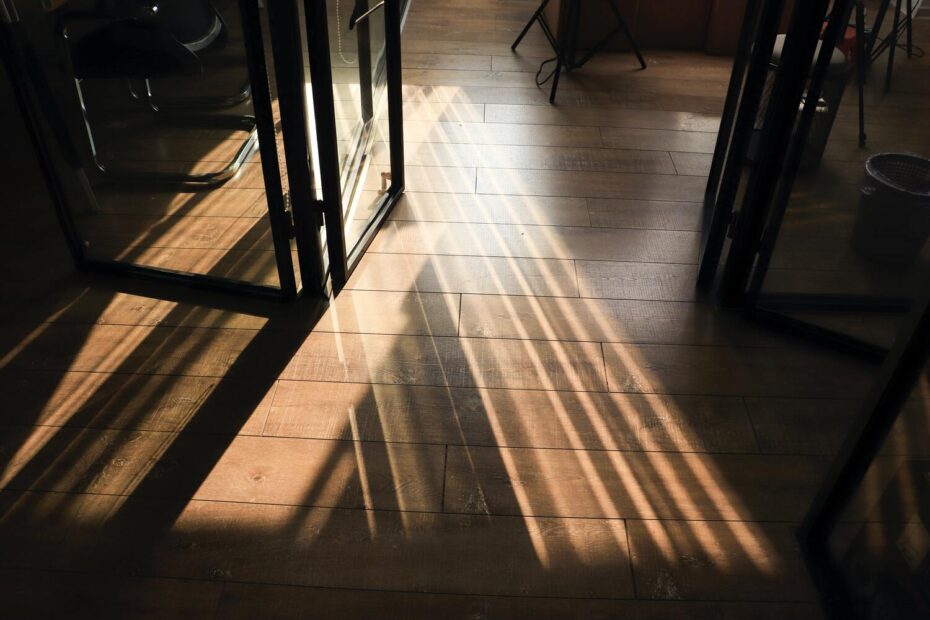Vinyl flooring can differ in terms of their shapes and sizes, their composition, and their method of installation. In the following article, we go into detail about the different types of vinyl flooring available.
What is Vinyl Flooring Made Of?
First understanding what makes up vinyl flooring can help homeowners decide which type of vinyl is most suitable for them. The vinyl flooring that is most commonly available is heterogeneous vinyl, which is vinyl that is composed with multiple layers of materials.
All types of vinyl flooring are made of flexible polyvinyl chloride (PVC), which may be recycled or made from fully pure virgin vinyl pulp. The core is made of vinyl derivatives such as stone plastic composite (SPC), which uses limestone as a main filler. Additional reinforcements such as fibreglass are sometimes added to the structure to provide additional stability.
The total thickness of the vinyl flooring is determined by the multiple layers, one of which is the thickness of the wear layer. The wear layer is the layer that lies between the protective top coating and the image or printed design layer. Whereas the total thickness of a vinyl floor is expressed in mm, the wear layer is measured in mil (0.001 of an inch).
Homeowners who are looking for long-lasting vinyl flooring should consider the wear layer thickness of the type of vinyl flooring they are purchasing. Besides being less durable, thinner vinyl may conform to the shape of the subfloor, making it less comfortable underfoot. The printed design may also damage and fade if the wear layer breaks down. It is recommended that the wear layer of vinyl flooring be at least 20mil, which corresponds approximately to a 0.5mm wear layer.
What are the Different Types of Vinyl Flooring?
- Roll
This type of vinyl is available as a singular roll ranging from 6 to 12ft. Among the different types, this type of vinyl is the most economical option. However, there is little flexibility in terms of replacement. In the event of damage, the whole floor will need to be replaced. This type of vinyl is the go-to flooring solution for large foot areas such as commercial spaces and is less suitable as residential flooring.
- Planks
Vinyl planks are the go-to choice for homeowners who want their flooring to mimic the appearance of real hardwood floors. Vinyl planks types can range from lighter and more neutral tones to darker and richer finishes, as well as resemble the grain and textured look of real hardwood. These provide desired qualities in the flooring such as increased durability and being termite-proof, at a fraction of the cost of real hardwood.

- Tiles
Tiles are a popular option for homeowners who want to achieve a classic stone- or ceramic-tile look in their home. This type of flooring is well-suited for small residential areas as the vinyl tiles can be easily cut to fit in tight spaces. Damaged sections can also be easily removed and replaced without affecting the rest of the surface.
- Luxury Vinyl Tiles (LVT)
Luxury Vinyl Tiles (LVT), or High End Resilient Flooring (HERF), differs from conventional types of tile and sheet vinyl in terms of its thicker wear layer. With a thicker wear layer, the structure is tough and more durable. Resilient vinyl flooring can better withstand dents and scratches and is thus ideal for homeowners who want a high-quality floor that is long-lasting.
The thicker wear layer of LVT flooring also helps to provide enhanced slip resistance. Naturally, LVT flooring will cost more than conventional types of vinyl with a thinner wear layer, due to its higher impact resistance, among other qualities.

LVT flooring is available in clickable types, allowing for fuss-free installation of the vinyl flooring without the use of an adhesive.
- Stone Plastic Composite (SPC) Tiles
Together with Luxury Vinyl Tiles (LVT), Stone Plastic Composite (SPC) tiles are a type of vinyl flooring that is considered top-tier. SPC vinyl flooring is so named because of its core, which consists of a combination of ground limestone and polyvinyl chloride (PVC).
SPC vinyl flooring boasts superior moisture resistance as the core stone material is fully waterproof. This makes it an excellent choice for high moisture areas such as bathrooms. Besides being water-resistant, the material is highly dense. Its higher density makes it harder and thus, more durable, than softer types of vinyl flooring on the market.
SPC vinyl flooring is also eco-friendly. It is free of formaldehyde and contributes minimally to VOC emissions.
- Eco-Resilient Vinyl
Resilient vinyl also comprises an eco-friendly option called Eco Resilient Flooring (ERF) for homeowners who are concerned about harmful emissions. Features of this type of vinyl flooring include the safe composition of material used for manufacture and its contribution to indoor air quality.
ERF is made of less toxic material compared to conventional vinyl and is suitable for homeowners who have children or pets in their household. This type of Eco Resilient Flooring is typically made from pure virgin vinyl pulp, as opposed to recycled vinyl, which can contribute to poor health and indoor air quality.
Volatile Organic Compounds (VOCs) are a category of harmful emissions that can affect the skin and respiratory system over time. Children and pets are especially susceptible to these chemicals due to their smaller organs and body mass. Besides VOCs, phthalates are another group of chemicals that is commonly present in recycled vinyl. However, vinyl flooring brands have undertaken emissions testing to ensure that their VOC emissions are still within a healthy and acceptable range for pets and children.

In conclusion, homeowners who are shopping around for vinyl flooring should check the wear layer thickness as it is a key factor of how the flooring will hold up over time. Besides considering how the shape of the vinyl contributes to the look and feel of the flooring, homeowners may also want to check the composition of the vinyl and look out for types of vinyl flooring that is green-label certified.


